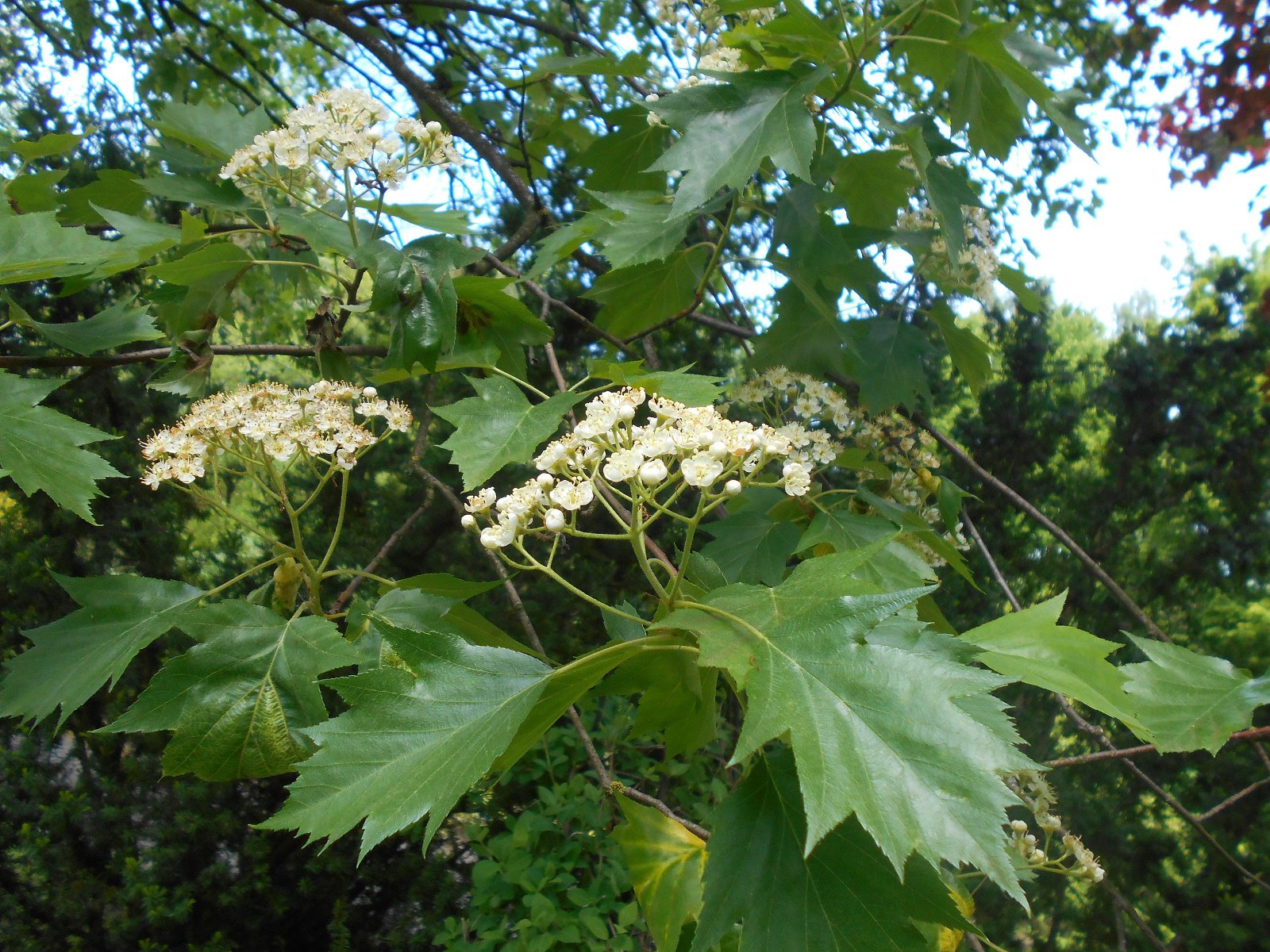Torminalis glaberrima
Wild service tree
Species Tolerances
- Drought Tolerance: Medium
- Shade Tolerance: No
- Waterlogging Tolerance: Low
- Frost Tolerance (trees from warmer climates may be frost tolerant, but their flowers may not be): Yes
- RHS Hardiness: H6
- Optimum Conditions for Growth:
(Synonym Sorbus torminalis) A medium sized tree for a wide range of soils including on limestone with clay, often on alkaline, but also found on neutral or acid soil. Prefers an open aspect without too much shade. Found at present in lowland Britain and only reaches as far north as Cumbria and Yorkshire. - Susceptibility to Pest/Disease:
May be susceptible to fireblight and silverleaf and if planted too densely, may suffer other issues affecting native members of the Rosaceae family

(Sorbus torminalis), Ogród Botaniczny UMCS w Lublinie/ Salicyna/ https://creativecommons.org/licenses/by-sa/4.0/deed.en
Service to Pollinators
- Summary of Service to Pollinators:
good source of nectar and pollen, masses of flowers freely worked when there might be a dearth of other sources into the ‘June gap’. With some honeydew when aphid active. - Nectar Value to Pollinators: 2 (of 0-3)
- Honeydew Value to Pollinators: 1 (of 0-3)
- Pollen Value to Bees: 2 (of 0-3)
- Flowering Period: May-Jun
Risks
- Human Toxicity: Non-toxic
- Livestock Toxicity: Non-toxic
- Invasive Risk: No
- Suckering: Yes
Products
- Edible Fruit: Yes
- Edible Leaves: Insufficient Data
- Edible Sap: No
- Edible Seeds: No
- Honey, major source in UK: Yes
- For any medicinal potential, see 'Further Details' below.
- Timber: Yes
- Livestock Fodder: Yes
- Other Products:
Wood is hard, fine-grained and valuable, though the tree requires pruning to prevent forking during growth.
Utility
- Nitrogen Fixation: No
- Organic Matter Accumulation: No
- Phytoremediation: No
- Deacidification: No
- Windbreak: Yes
- Soil Erosion Control: No
- Shade or Shelter: No
- Plant Support: No
- Integrated Pest Management: No
- Wildlife Value: Yes
- Wildlife Value Summary:
Berries are available to a large range of birds and mammals. - Graduated Nativeness Classification ⓘ: 1 (of 1-10)1. Historic Native
2. Historic Introduction
9. Neutral Introduction
Further Details
Hardy in cold winters to minus 15-20 degrees C, and since it flowers in May-June, the flowers are not likely to be be damaged anywhere in the British Isles. Seeds contain small quantities of hydrogen cyanide. Suckers freely often favouring this strategy when pollination is poor. Moderate to high resistance to windthrow as roots reach 1-2m in depth. Synonym: Sorbus torminalis